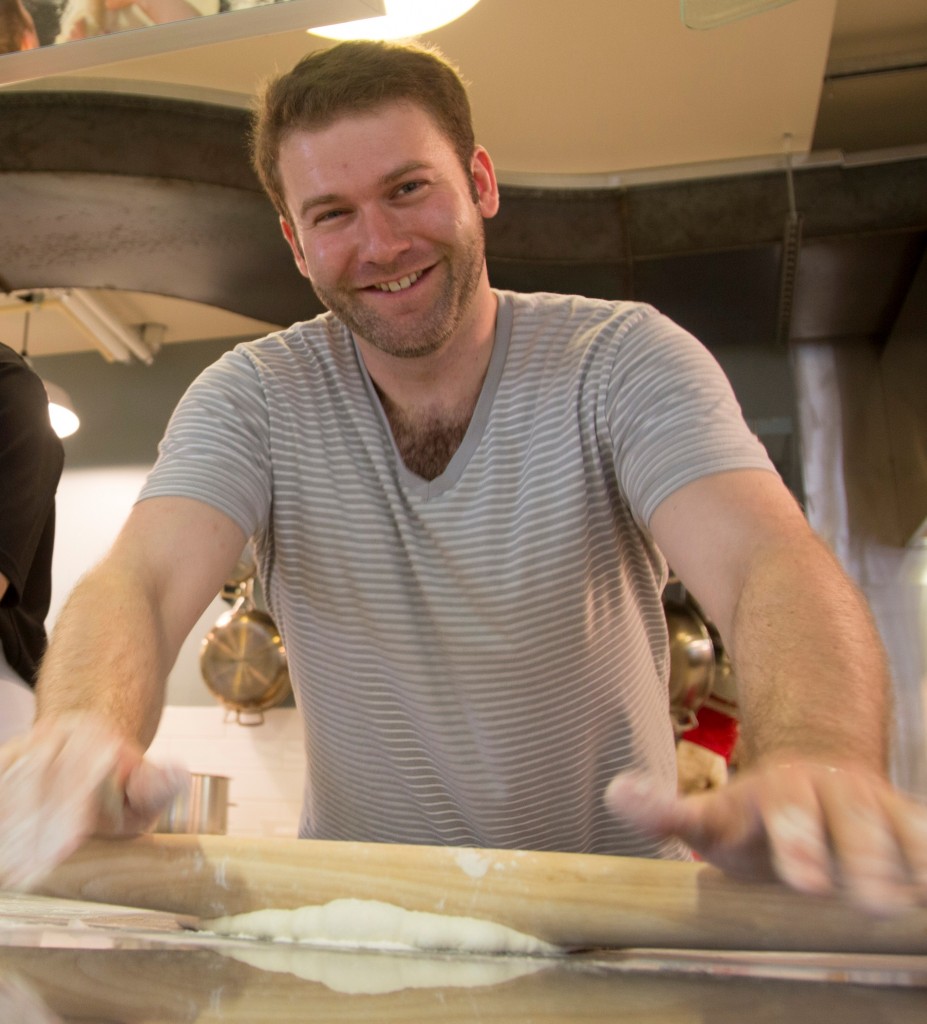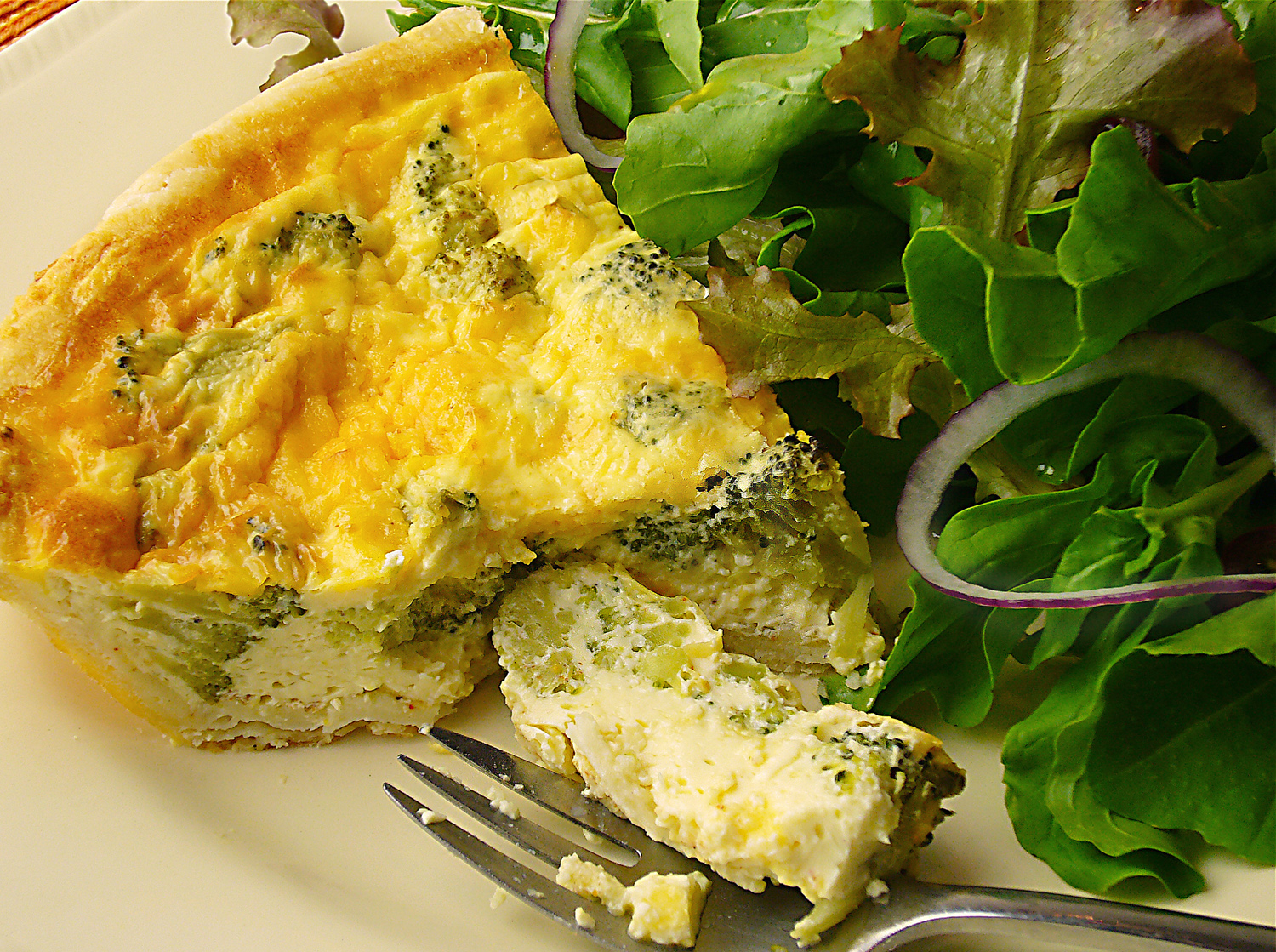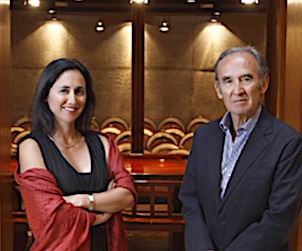
Stratford Chef Jordan Lassaline certainly knows his way around a rolling pin.
Despite having an enviable roster of speakers and presenters from all over, it is excellent to see that this year’s Savour Stratford Perth County Culinary Festival is celebrating homegrown local talent with the inclusion of a number of Chefs who call Stratford their home.
In anticipation of this weekend’s celebrations we had a chat with Stratford’s own Jordan Lassaline, who will be presenting a session on Saturday at 5pm on the Toronto Star Culinary Stage.
Good Food Revolution: Great to see you again Jordan. Now what have you been up to been up to since we saw you in Stratford last year?
Jordan Lassaline: Great to see you as well. It’s been a very busy year actually. Last September I started a new position as the Community Kitchen Chef at the Local Community Food Centre here in Stratford. We officially opened later that year in November but it’s been an incredibly interesting and rewarding experience to help set up and open a project like this. The response from the community has been incredible and looking back now it’s hard to believe where we stood last fall.
GFR: And what will you be presenting at Savour Stratford for 2013?
JL: I will be presenting a selection of ethnic street food recipes on the Toronto Star Culinary Stage on Saturday. It’s a few recipes I picked up while working in Sri Lanka in 2009 and a couple favourites I make at home. I’m also preparing a Red Braised Pig Tail Terrine for the Tasting Tent on Sunday. Our Food Skills Coordinator, Liz Mountain, has been involved in the World Crop Project this summer and has grown an impressive selection of warm climate vegetables in our greenhouse and garden so we will be featuring locally grown eggplants, chilies, and ginger in our dishes this year.
GFR: What attracted you to the Stratford Chefs School in the first place?
JL: I was initially drawn to the Stratford Chefs School for their reputation for producing excellent chefs but as I researched further I was impressed by the fact that their instructors are all extremely talented chefs, currently working in the industry. It provides their students the opportunity to learn from professionals that not only have a strong practical background but are also up to date on current techniques, trends, and
GFR: You have worked with many an inspiring Chef in your relative youth… is there one that really stands out as a mentor?
JL: I worked for many years under Chef Bryan Steele at the Prune Restaurant here in Stratford and I’d have to say, out of all the talented chefs I’ve had the pleasure of working with, Chef Steele has taught me the most and shaped my approach to food and dining.
GFR: Tell us more about the The Local, and what drew you towards working there as opposed to a restaurant gig?
JL: Back in 2009 I had the opportunity to spend three months teaching western cooking and bread making near Anuradhapura in Sri Lanka. It was a live altering experience. I was living on a little organic farm in the middle of the jungle working with the produce grown there along with what we could forage and purchase in the nearby towns. It was pretty incredible to work with a small group of locals, from different backgrounds, speaking different languages, all sharing their knowledge of food. It’s amazing to see how quickly differences are forgotten when people get in the kitchen together and how easily it is to communicate, despite obstacles, when you cook with someone. It’s a language we’re all familiar with. While I’ve always tried to be involved in the community and to volunteer my time when I could. I found upon returning home. I really felt drawn to teaching and working within food security.
GFR: Will you be using ingredients from your garden at The Local? What has done especially well this year?
JL: Kale. My volunteers have been teasing me that I could write a cookbook with nothing but recipes for kale. We’ve been looking for ways to use it every day. Scott McNeil, my counterpart at the Stop CFC has been sharing recipes for what he calls Secret Kale. While I love it, it’s not always the most popular component of a meal so we are always looking for ways of hiding it, chopping it finely and folding it into something else, or blending it into sauces. It’s been a real challenge to keep up to the constantly supply of fresh kale from the garden.
GFR: What is your favourite Autumnal local ingredient right now?
JL: I think you’ve got to celebrate sweet corn and tomatoes while you can. While most people are used to having them around all year, there’s no comparing the flavour of garden ripe summer tomatoes to those mealy flavourless winter ones. At the same time we are seeing the first winter squashes coming out of the garden which make me think of comforting winter dishes that are coming up.
GFR: Since you first experienced Stratford how have you seen it change over the years?
JL: We are so fortunate to have the caliber of restaurants that we do in Stratford. There are the original fine dining restaurants like the Prune, Rundles, and the Church that, along with the Chefs School, have produced a new generation of chefs that are now opening up their own kitchens.
GFR: Knowing little to nothing about the culinary culture of Sri Lanka, please tell us a little about your time working there?
JL: There was a culture shock, to say the least. It’s a beautiful country and the people are lovely. I was under the impression when I got on the plane that I was to be working on a fairly well established organic farm with their own dairy cows, and egg laying chickens. I recall sitting down with the Program Manager, the day I arrived and she explained to me that the dairy cows weren’t producing, the dry season had reduce the crop severely, and birds of prey had carried off the chickens. Also, as the majority of the population was either Buddhist or Hindu the culture is largely vegetarian. Working there required a lot of flexibility. Curry and Rice is the standard meal, for breakfast, lunch, and dinner but the variations are very impressive. The food is typically spicy and always served with hot coconut sambal which becomes important when you’re eating with your hands. It’s almost like cement that binds your curry until it’s solid enough to transport to your mouth.
My volunteers were more than happy to show me around the farm and once I realized how much food was available, it was pretty mind blowing. We foraged greens from the rivers, mushrooms from the jungle, and I could actually reach out the window from my bed and pick ripe papaya. The jungle was full of pineapples, mangoes, limes, tamarind, ginger, and jack fruit as well as things like wood apples, and rambutans which I had never cooked before. I also found you could make a pretty fantastic risotto using the local rice, finishing it with coconut cream as I never managed to get my hands on butter while I was there.
GFR: And did you learn anything over there that you brought back home and still sticks with you today?
JL: For sure, there are recipes I that I find myself craving. I’ll be making a Pickled Sri Lankan Eggplant dish as well as Egg Hoppers, a rice flour crepe cooked until crisp with a softly set egg in the middle, for my cooking demo at Savour Stratford this Saturday.
GFR: Can you give visitors any “Insider’s tips” about where to dine during Savour Stratford?
JL: There are a lot of places to check out in Stratford. We are really lucky to have the caliber of restaurants that we do. For a special occasion, the Prune is a favourite of mine, as is Rundles and Pazzo. There is also some fantastic food coming out of the kitchens of Mercer Hall. Chef Tim and his wife Jesse have done a fantastic job there. Oh, and if you’re looking for a great bit of take away to enjoy by the river, stop into Grub to Go on Wellington. They make some awesome sandwiches, soups, quiches, and stews using exclusively local ingredients.
GFR: And where are you normally to be found enjoying yourself when not working?
JL: This summer, I’ve really settled into Monforte on Wellington. I really like the vibe there, the menu is small but you know the food is going to be great and the staff are fantastic. The atmosphere is very calm and comfortable. I can spend a few hours on the back patio if the weather is warm enough.
GFR: Excellent stuff Jordan… see you over the next few days!
 Edinburgh-born/Toronto-based Sommelier, consultant, writer, judge, and educator Jamie Drummond is the Director of Programs/Editor of Good Food Revolution… And as he once worked with Jordan back in his Jamie Kennedy days, it is always a pleasure to see Jordan.
Edinburgh-born/Toronto-based Sommelier, consultant, writer, judge, and educator Jamie Drummond is the Director of Programs/Editor of Good Food Revolution… And as he once worked with Jordan back in his Jamie Kennedy days, it is always a pleasure to see Jordan.







